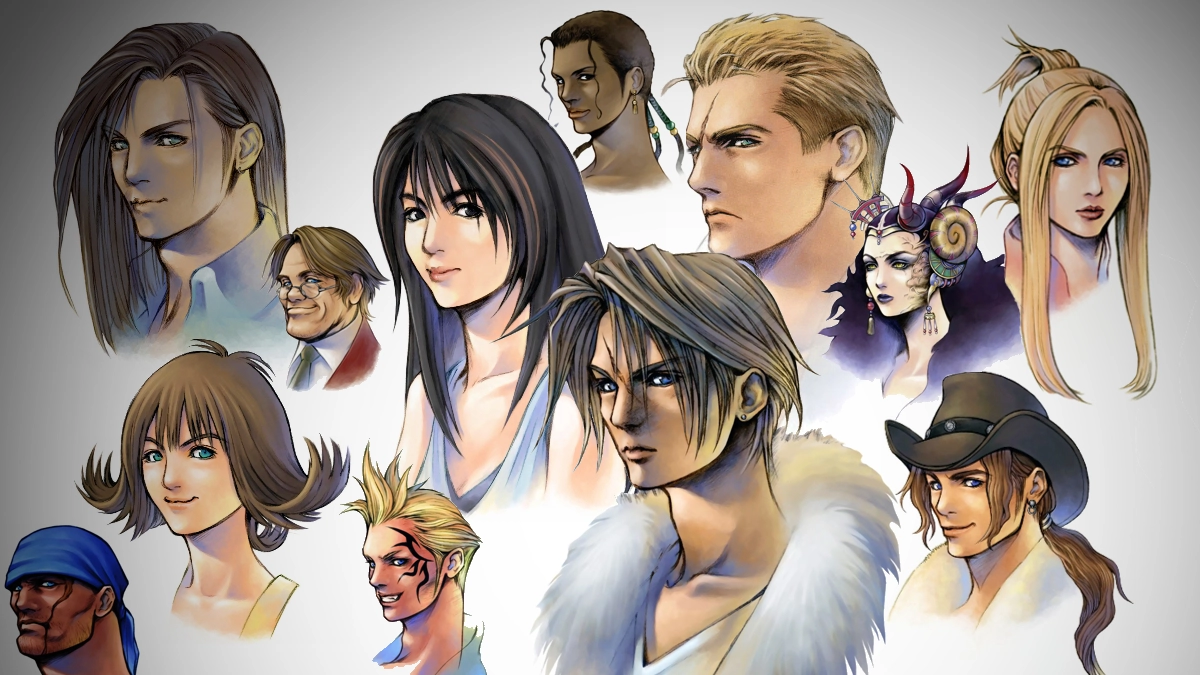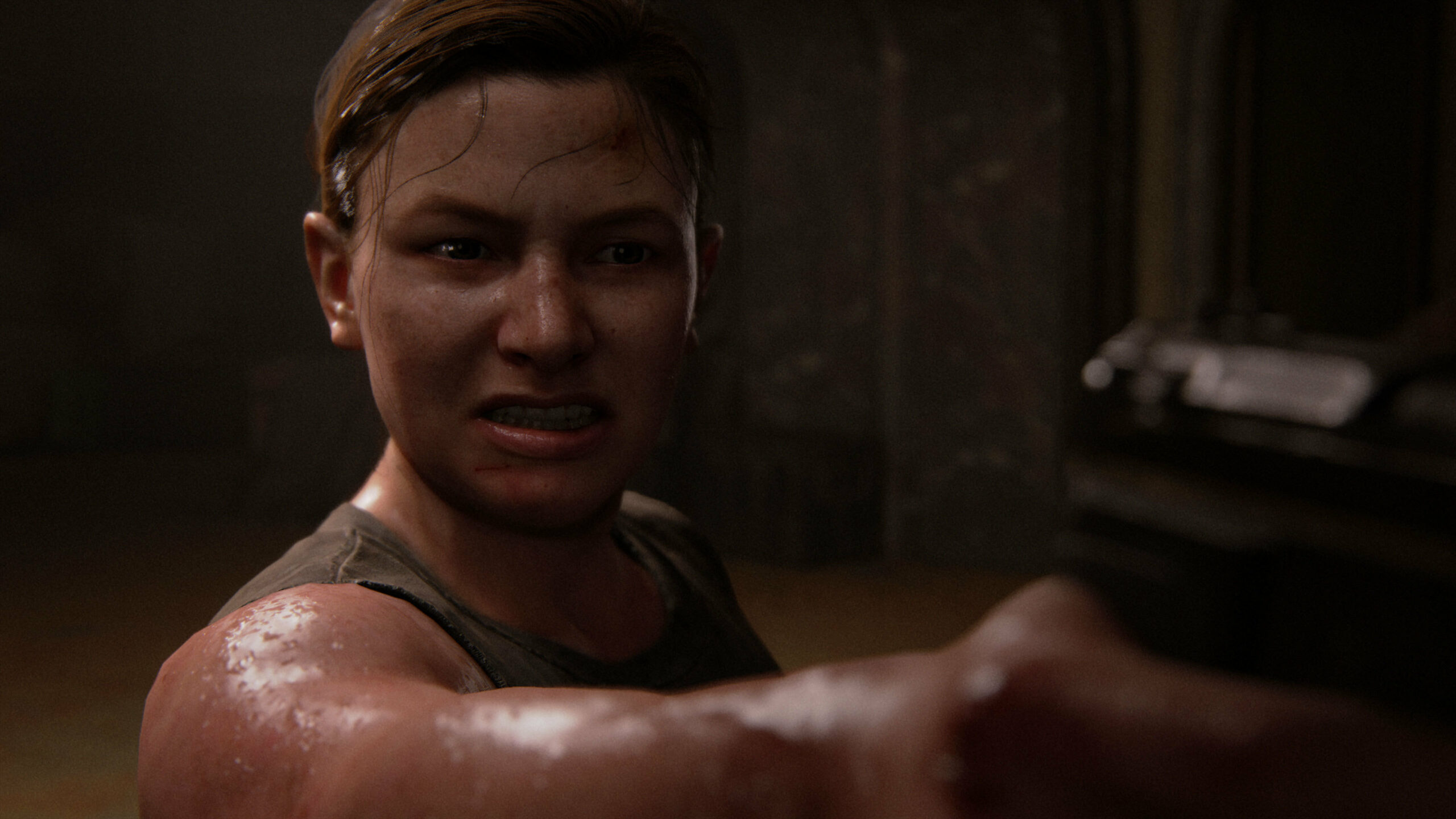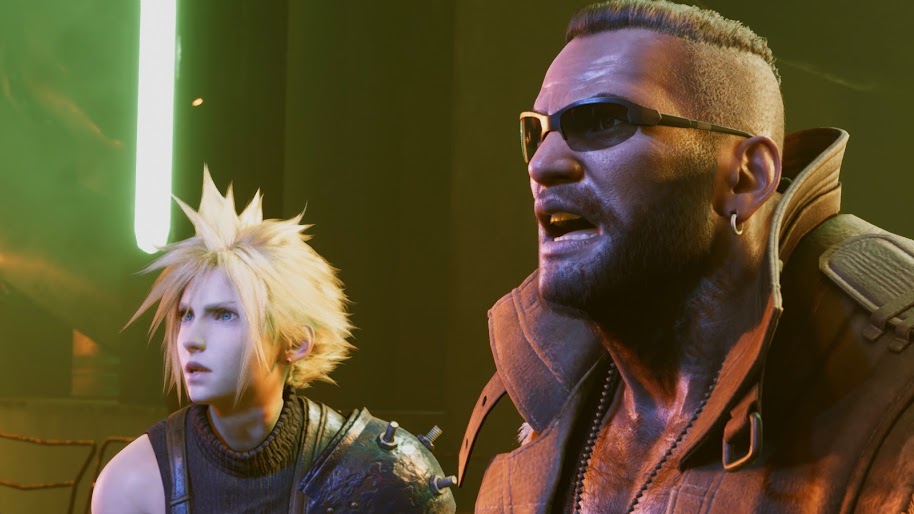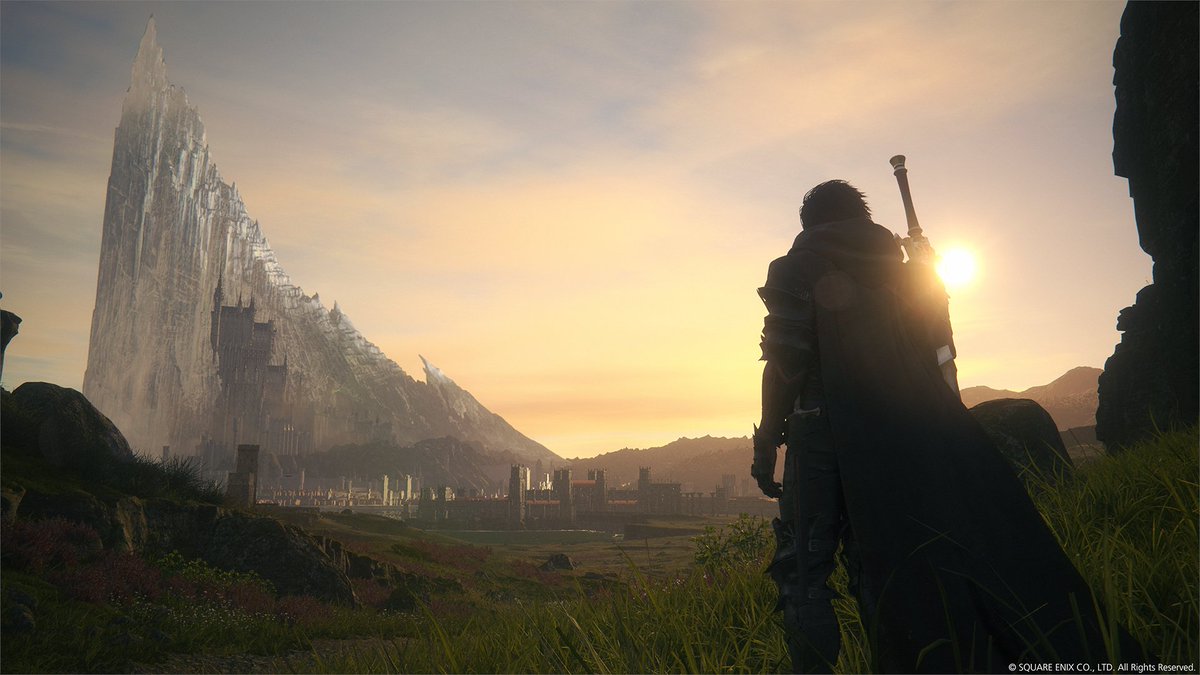Final Fantasy XVI, despite a somewhat impressive story trailer reveal a few weeks ago, has come under scrutiny, and criticism, from a group of fans wanting a more ‘diverse’ cast, within the confines of the game’s storyline, than the one shown in trailers.
In an era, were US media in particular, seems to be striving for more diversity in its television shows, and movies, it seems that Square Enix has stuck to an “all medieval European looking” cast for the 16th entry of its prized franchise.
Naoki Yoshida had an answer to critics and fans that have complained about the lack of diversity in the game in an interview with IGN last week:
“This is a difficult question, but not one that was unexpected, seeing as diversity in entertainment media has become a much-discussed topic as of late. The answer I have, however, may end up being disappointing to some depending on individual expectations.” Yoshida explained. “Rather than create something on a global scale, it was necessary to limit the scope to a single landmass – one geographically and culturally isolated from the rest of the world in an age without airplanes, television, or telephones”.
From the beginning, Final Fantasy XVI was clearly heavily inspired, and influenced by a European medieval setting. The game takes place within a single landmass, and in order to stay true to the conventions of an isolated land, Yoshida stuck to a medieval European look for its inhabitants.
“Due to the underlying geographical, technological, and geopolitical constraints of this setting, Valisthea was never going to realistically be as diverse as say a modern-day Earth… or even Final Fantasy 14 that has an entire planet (and moon) worth of nations, races, and cultures at its disposal. The isolated nature of this realm, however, does end up playing a large part in the story and is one of the reasons Valisthea’s fate is tied to the rest of the world. Ultimately, we felt that while incorporating ethnic diversity into Valisthea was important, an over-incorporation into this single corner of a much larger world could end up causing a violation of those narrative boundaries we originally set for ourselves. The story we are telling is fantasy, yes, but it is also rooted in reality.”
In some ways, Yoshida wanted to avoid controversy (is avoiding controversy even possible these days?) by sticking to his original vision, and a single ethnicity that made sense within the landscape and source of inspiration in the game.
Yoshida wanted to avoid the possible fallout of having a good guy of a certain skin tone combating an evil guy of a different one, “it can be challenging to assign distinctive ethnicities to either antagonist or protagonist without triggering audience preconceptions, inviting unwarranted speculation, and ultimately stoking flames of controversy.”
Yoshida closed out his explanation with this statement: “In the end, we simply want the focus to be less on the outward appearance of our characters and more on who they are as people – people who are complex and diverse in their natures, backgrounds, beliefs, personalities, and motivations. People whose stories we can resonate with. There is diversity in Valisthea. Diversity that, while not all-encompassing, is synergistic with the setting we’ve created and is true to the inspirations from which we are drawing.”
There have also been complaints about the lack of a strong female lead, which is easily explained by the fact that the game only has one protagonist, and that’s Clive. That’s doesn’t mean that there won’t be any strong female characters around his story. But again, strong story telling requires strongly written characters, and FFXVI will focus on Clive as its protagonist.
My Two Cents on FFXVI’s Lack of “Diversity”

This is a sensitive topic in the U.S. Thus, by stating my opinion, I understand that I might receive some backlash as well. These days, it seems that you can’t win, no matter what side of the fence you stand on.
Given the statements in the above paragraph, I feel for Yoshida, and his team. They were placed in a “no-win” situation regarding diversity within the 16th entry of their series. Diversity for the sake of diversity, is a harbinger of criticism and controversy itself.
We all saw the huge fan backlash that The Last of Us: Part II had. The game was labeled by many as feminist, and pro-gay rights. Despite the fact that Ellie (the protagonist) was always openly a lesbian; and the inclusion of a supporting “transgender” character (we touch on this more below) wasn’t as important to the story as some made it out to be.
The game remained focused on Ellie’s revenge quest for Joel’s brutal death. It was a daughter figure trying to avenge a father figure in a crazy post-apocalyptic world story.
Did I think Naughty Dog consciously pushed gender diversity in its work? Yes, that’s obvious, and for that, the company was stricken with some heavy backlash in online forums everywhere. It seems that a section of gaming fans focused on the game’s “diverse” agenda rather than on the title’s outstanding quality.
As shown above, Diversity in some fictional works can create just as much controversy as non-diverse choices. It seems you can’t please everyone these days. Take, for example, Amazon’s new Lord of The Ring series. The inclusion of a Black elven soldier created quite a stir among the Tolkien fan base. The main complaint was that Tolkien did not have Black elves in his writings, and thus, including a darker skinned elven warrior within the storyline went against the conventions established by the Tolkien’s beloved source material.
On the other side of the fence, the crowd on the side of inclusion in entertainment media were up in arms when James Franco (a Caucasian actor) was cast to play Fidel Castro in a biopic. This, despite the fact that Franco looks more like Fidel, than any of the Hispanic actors suggested for the role and Castro’s family seemed pleased with the casting choice. After all, for all intents and purposes, Castro was of European ancestry (like Franco).
As a Hispanic man, I have no issue with Franco getting role. In the pursuit for “diversity”, we can’t start discriminating against a certain group.
The point here is that somewhere, someone, will find something to complaint about when it comes casting choices in any form of entertainment.
This brings us to Yoshida and Final Fantasy XVI. I think Yoshida, in a no-win situation, made the right choice. He stayed true to the game’s setting and its historical inspiration. However, there were some people of color in Europe in medieval times. So, Yoshida’s take is not entirely historically accurate. It is a fictionalized version focusing on a small group of characters.
The general idea behind Yoshida’s decision making is that including people of color in the storyline would have created a controversial scenario as well. We have to remember that the protagonist remains a “white” character. A support role, or antagonist role for a darker skin character might have been seen as an offensive choice, as well.
Forspoken, a big budgeted Square Enix title, features a black young woman as its protagonist, and yet, this choice has not been universally met with love by the Black community as some feel the character was built utilizing negative stereotypes of the community.
Again, it seems that pleasing everyone in this day and age is an impossible task.
On the other hand, a certain group of fans would have attacked the game for being “diverse” for the sake of diversity, regardless of the quality of the title (again, see TLoU2).

Then there is the argument that Final Fantasy is a “fantasy” work. Therefore, it can break the rules of realism by including people of color in a medieval European setting. This is, partly, true, there were people of color in medieval Europe, but for the most part, depending on the region, medieval Europe was overwhelmingly white.
Final Fantasy has traditionally, at least since the late 1990s, made an effort in including a diverse cast of heroes and villains. Rude, Barret, Waka, and others, are popular series characters which stepped away from certain blue eyed, blonde hero, stereotypical looks.
That particular look (blonde with blue eyes) was a mainstay, not only in Final Fantasy, but in Japanese Anime. So, if you are in the camp that considers this a sin, realize that Squaresoft wasn’t the only company doing this.

The funny part in all of this, is that as a dark haired and brown eyed individual, I never felt misrepresented by the series. The 1990s were a different (if much simpler) time, of course, but I just took the games for what they were; awesome RPGs with epic storylines.
Ocarina of Time’s, Link, remains my favorite video game character in history. Needless to say, he doesn’t look like me.
I didn’t notice the lack of diversity in Final Fantasy XVI, until this controversy erupted over social media. That said, I understand that there is a community that feels underrepresented in the series, and again, their take might, and will likely differ from mine.
Is it Time to Cancel Final Fantasy?

Well, the series, single player wise, has many more important issues to tackle than diversity. Frankly, it has been (arguably) more than 20 years since Final Fantasy has produced a great game. That, to me, as fan of the series, is a more pressing concern.
The only solution to the diversity issue in the game would have been to feature a character creation and customization system. So, that gamers regardless of their race, creed, ethnicity, gender, etc. could create an avatar that best suited their needs.
The above solution would bring its own set of issues and challenges to overcome, but it seems that in 2022, such a feature would diffuse some of the “lack of diversity” criticism aimed at games.
Artists shouldn’t be pressured into reshaping their works. The industry should hire more writers from different backgrounds, perhaps this way, we will get characters from different backgrounds that do not feel forced or out of place.
The ironic thing here is that Final Fantasy XVI is being developed by a Japanese (non-White) team, and yet, the Japanese don’t seem to have an issue with their lack of representation within the game.
At the end of the day, Final Fantasy XVI seems to be Square Enix’s most significant effort in the franchise since Final Fantasy X. So, there would be no “cancelling” on my end. It is a game, a fantasy work, enjoy it for what it is.
Agree with the author? Couldn’t disagree more and are frothing at the mouth to tell him? Leave a comment here, on Facebook or send an email and make sure to follow Never Ending Realm on Facebook, Twitter, and YouTube!

Stop trying to enforce your western cultural values on the Japanese, that’s colonizing!!
It’s a fictional world. Maybe there isn’t any diversity there.
Bunch of idiots complaining about diversity. This is just how quality games and movies can be ruined because of the dumb ideal.
Lack of diversity In a game populated by npcs that use the same damn character creation engine the player uses is peak first world problem. Besides, we all know ghd people baying the loudest are the ones who don’t play it.